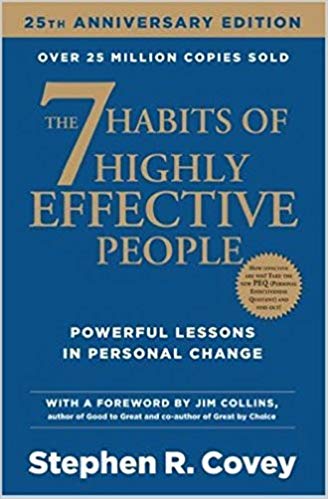

This article is an excerpt from the Shortform summary of "The 7 Habits of Highly Effective People" by Stephen Covey. Shortform has the world's best summaries of books you should be reading.
Like this article? Sign up for a free trial here .
While we ideally want to work toward empathic listening methods, we also need to understand some of undesirable listening habits, to make sure we don’t use them in our relationship. Autobiographical Listening is one type of listening we want to learn to avoid. But what is Autobiographical Listening?
Autobiographical Listening is any attempt by the listener to make the conversation about them. This is detrimental to relationships.
Read more to find out about how to listen and avoid Autobiographical Listening.
What is Listening? Why Should We Listen Empathically?
In an interpersonal relationship, it’s just as important that you’re understood as it is that you understand the other person. To help the other person understand your perspective, you need to effectively express it. This is why it can be harmful to employ Autobiographical Listening.
Ethos, pathos, and logos represent not only the different aspects of expressing your perspective, but also the order in which to carry them out. Many people start with logos, trying to make the logical argument for their case, but you’re more likely to get the other person to understand if you start from a foundation of principled character and a trusting, open relationship.
Empathic listening requires a paradigm shift for most people, because often people listen in order to reply, and their responses are based more on their own experience and interpretation than what the other person is saying. People typically listen in one of four ways, using Autobiographical Listening instead of Empathic Listening.
- Ignoring: In this case, you’re really not listening to the other person.
- Pretending: This is when you give automated responses like “right” or “absolutely” at the appropriate cues, but you’re not actually listening.
- Selective Listening: You’re only listening to pieces of what the other person is saying, as we tend to do when small children are going on incessantly.
- Attentive Listening: You’re listening closely to everything the person is saying.
What Happens When We Fail? What is Autobiographical Listening?
When we fail to listen empathically — from the other person’s perspective — we listen autobiographically, interpreting everything through our own lens and experiences. Autobiographical Listening tends to yield one of four responses.
- Evaluate: You determine sides and agree or disagree. You are jumping to decisions without fully understanding the situation, which robs the person of the emotional space she needs to process a problem.
- Probe: You ask questions based on your interpretations and experiences, and not based on what the person is saying. This controls the conversation and is invasive to the other person without getting you any closer to understanding; probing often creates communication barriers between parents and children (e.g. “How was school?” “Fine.” “What did you learn?” “Stuff.” “What’s wrong?” “Nothing.”). This approach also uses left-brained logic for the right-brained task of understanding emotion.
- Advise: You offer advice on what to do and how to fix the problem, prescribing before diagnosing.
- Interpret: You try to figure out the person’s motives and behaviors based on how you would act in that situation; this is different than trying to understand the other person’s perspective.
Autobiographical Listening can take a toll on our relationships. Make sure you think about the types of listening above in order to avoid Autobiographical Listening and work toward listening empathically.
———End of Preview———

Like what you just read? Read the rest of the world's best summary of "The 7 Habits of Highly Effective People" at Shortform . Learn the book's critical concepts in 20 minutes or less .
Here's what you'll find in our full The 7 Habits of Highly Effective People summary :
- How to prioritize the hundred tasks you have to focus on the one or two that really matter
- The right way to resolve every disagreement and argument
- How to avoid burning out and succeed over 20+ years






